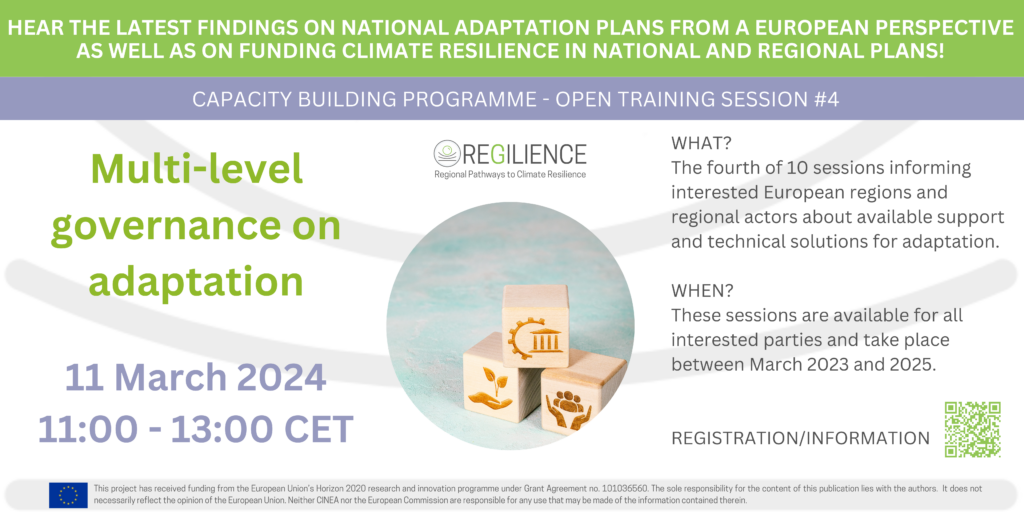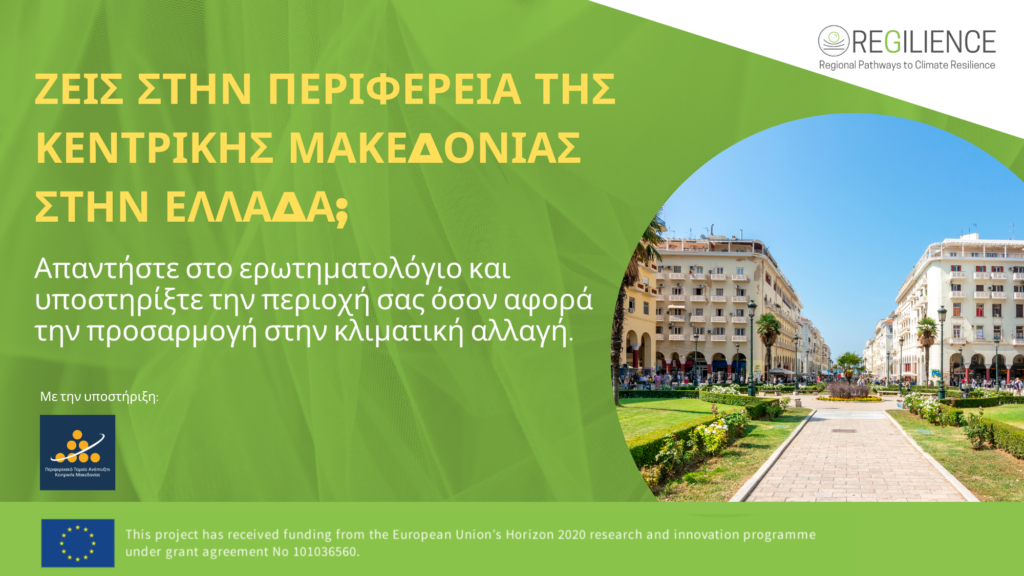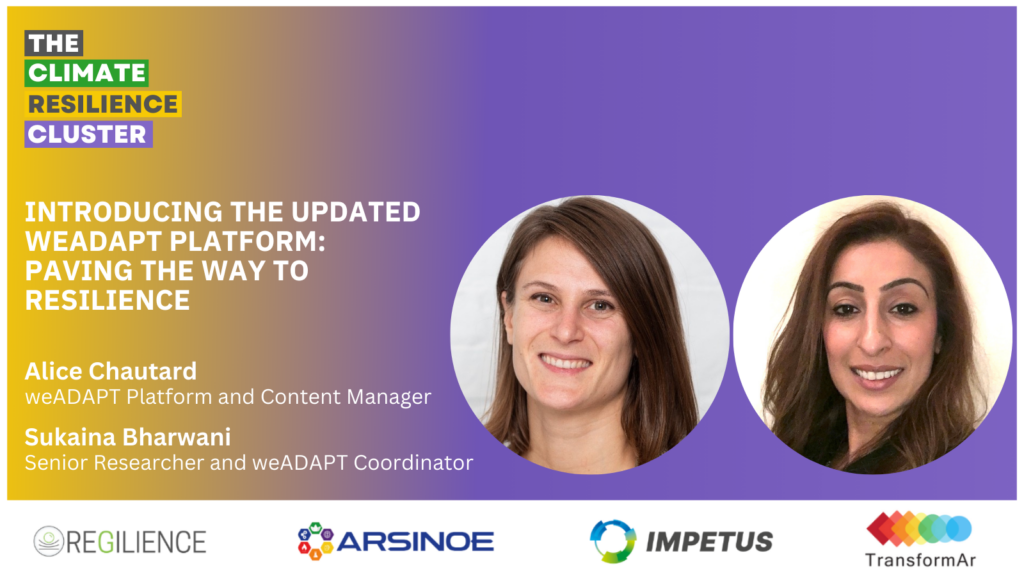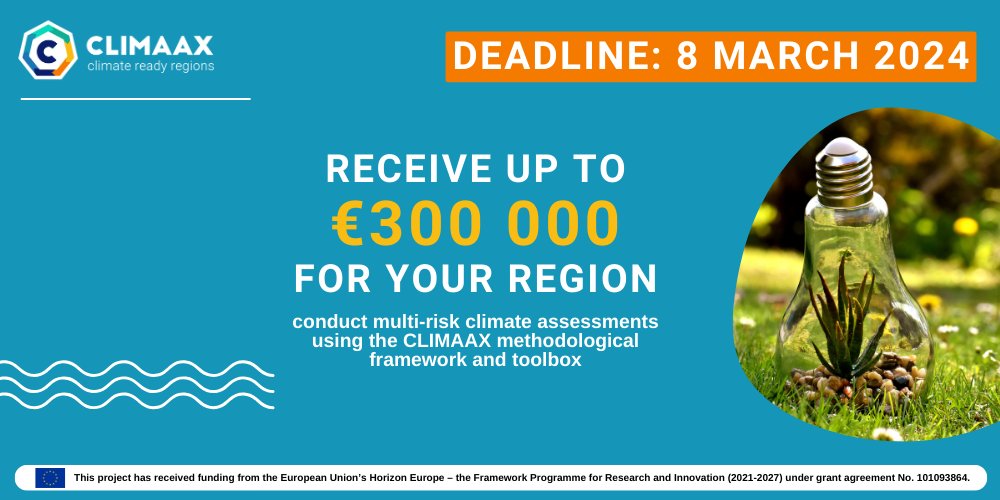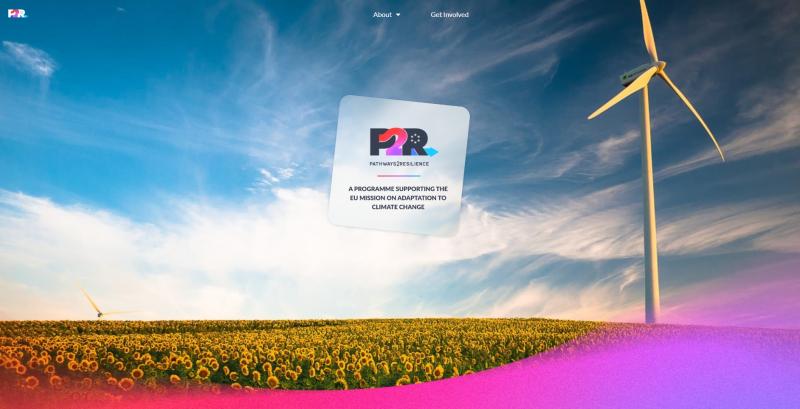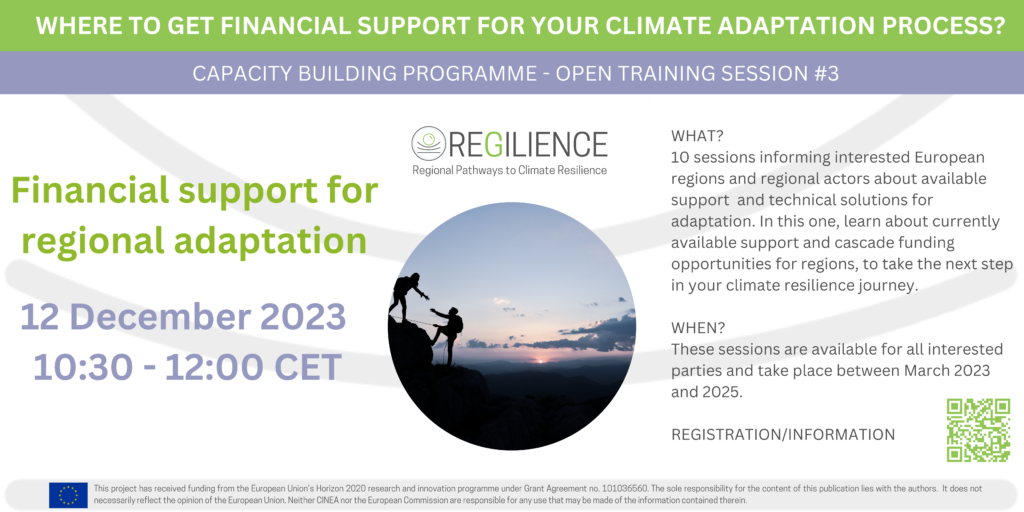
March: Celebrating Women’s Achievements!
As part of our collaborative initiative with sister projects ARSINOE, IMPETUS, TransformAr, Pathways2Resilience, and REACHOUT, we’ve had the privilege of interviewing Ms. Jen Heemann. She serves as an Expert in local action for energy and climate at IEECP and is the Project Coordinator of the REGILIENCE Project.
Learn more about her journey!
Q.: Ms. Heemann, what pivotal moments have led you to work on fostering knowledge exchange and collaboration for sustainable practices, fueling your passion for creating a harmonious balance between human activities and the environment?
Ms Jen Heemann: Growing up, I wasn’t the most confident kid. I faced bullying at school and had few friends. Luckily, my family’s apartment building in Porto Alegre, Brazil, had a small garden where I spent hours by myself, surrounded by trees, birds, and bugs. It was my safe haven, where I could be myself. I was not conscious of how that tiny garden influenced me back then, but I am today. I believe these and other moments in nature were crucial for my wellbeing (and still are!), making me respect and appreciate nature so much. Many scientific studies explore and explain how nature is good for our mental and physical health, but this is not something I learned from science. Since very young I knew I wanted to work to rethink and improve our relationship with the environment and climate… and gladly, I do.
Now, collaboration has been a guiding principle for me, both personally and professionally. One memorable instance occurred during a conversation with a person living on the streets of São Paulo ten years ago. While working on transforming public spaces, we held a jazz concert in a square that attracted many people from all walks of life, and this person approached me to share his ideas for the square. He shared simple yet impactful ideas, like installing drinking fountains to cope with the city’s hot summers. This measure seems obvious today, it’s mentioned in many guidelines on climate adaptation for coping with heat waves in cities, but it wasn’t the case ten years ago (at least not in Brazil and not that I know of). It was a moving experience that taught me that good ideas come from anyone, anywhere, but we must create the right conditions for them to emerge. People need to feel invited and safe to share their concerns and ideas, they need to feel and know that their views will not be ignored and be given a serious hearing. Open conversations like these are essential for the societal and systemic transformations we need.
Q.: Your work involves developing capacity-building activities for local and regional public authorities in climate action planning. How do you see the unique role of women in local governance driving climate-resilient pathways, and what challenges and successes have you witnessed in this regard?
Ms Jen Heemann: Women bring diverse perspectives, experiences, and leadership styles that are crucial for fostering inclusive and effective climate action.
For example, they are able to amplify community voices and priorities, particularly those of marginalised groups. Women often have a very good understanding of
the community’s needs and vulnerabilities, which is so essential to advocate for policies and initiatives that address climate change impacts in a holistic and equitable manner. Also, their participation in decision-making processes enhances the likelihood of integrating gender-sensitive approaches into climate action plans, considering how policies and programmes can impact women differently.
There is also a relevant role for women in capacity-building activities focused on systemic transformation, as women are often successful in creating spaces that make people comfortable to share their doubts, concerns, and needs. Sometimes they dare to show emotions, creating the conditions for people to connect at a deeper level, which can be helpful in achieving the full potential of learning processes in groups. Also, women tend to be empathetic and can spot when participants are not comfortable with a certain process or discussion or don’t feel encouraged to participate actively because of the group dynamics. This helps them know what needs to be addressed to improve the exchanges.
A big challenge for women’s involvement in policy-making and capacity-building processes is, of course, gender biases and stereotypes that may hinder women’s participation and leadership. For example, traditional gender roles that don’t see women as a relevant actor in such processes, and. governance structures that are dominated by men and can perpetuate the perception that women are less capable or suited for certain roles, especially leadership ones. Even the qualities I mentioned before, such as showing emotions and being empathic and compassionate, are often seen as
weaknesses which can undermine women’s credibility. However, we should be celebrating and making the best use of these qualities!
Q.: As the Project Coordinator of the REGILIENCE project, could you shed light on the project’s goals and impact through a women-centric lens? How does REGILIENCE contribute to shaping resilience strategies for regions, and what specific challenges and successes have you encountered as a woman leading this initiative?
Ms Jen Heemann: In REGILIENCE, we have a Gender Group which focuses on recognising the diverse contribution of gender to climate change adaptation and resilience, and aims to promote gender equality perspectives, inclusivity, and effective strategies throughout the project. We do so by making sure we have a good gender balance in project activities and by contributing to the understanding of climate impacts and vulnerabilities that can increase gender disparities. The gender work is in constant development and the gender group’s scope may cover various aspects. One example is the gender statement and disclaimer we have in every project deliverable, contributing to raising awareness on gender in resilience. Also, this campaign for the Women’s Day and interview are another good example.
I honestly feel very lucky to coordinate a project like REGILIENCE as I have never experienced any kind of discrimination for being a woman or Brazilian. In fact, since the beginning of the project, I have used all the qualities mentioned above (showing emotions, being empathic and compassionate) when applying regenerative leadership principles and techniques. Although this is not a common practice in project coordination, and I was a bit anxious to try this out, the response from the partners was very positive and encouraged me to continue.
For example, we start all monthly project meetings with a round of good news. One by one, we mention something good that happened to us, professionally or personally. Not only do the partners like to share their news (and most of us choose to share personal stories), but many are facilitating “good news rounds” in their Work Packages and Task meetings too! So now we have this special way of starting meetings in REGILIENCE, where we first connect with each other as human beings, making us feel comfortable to show vulnerability, exchange, and collaborate at a deeper level. The result is a more personal and caring environment, in which we help each other when needed and everyone is involved in project planning, decision-making, and implementation.
Q.: You are a mother of two daughters. How has this responsibility
influenced or leveraged your work, and what lessons have you learned
that are particularly relevant for Women’s Day?
Ms Jen Heemann: In climate resilience, we mention that resilient systems are adaptable and flexible in the face of unexpected events. Well, maternity showed me what a resilient system I am (lol)! Almost every week there is an unexpected event preventing me from following the perfect routine I have planned for myself, forcing me to quickly adapt and improvise. Knowing how to do that and stay calm is an art, and very useful at work… To be honest, I’m still working on the “stay calm” part. But what is truly amazing about maternity is that I discovered a new level of empathy, which gives me the energy and courage I need to do whatever is needed for my daughters’ wellbeing. Many times their wellbeing comes before my own, but I learned quickly I should find a balance and put my wellbeing first sometimes, as a healthy mind and body are essential for being able to take care of them as I want to.I learned to approach work the same way. If my body sends me signs that my workload might be too much for me at that moment, for example, if I notice I am breathing faster and have an accelerated heartbeat, these are signs I must slow down. If I don’t, I know I won’t be able to perform as I like, and it can have terrible effects on my health. So I do slow down, even if it means saying “no” to amazing projects and opportunities.
This also influenced my empathy for my colleagues and how I care for them. They will need to slow down sometimes and, just like me, they will need the support and understanding of others to be able to do so. Maybe the most important lesson I learned is how a supportive and collaborative work environment is crucial for healthy teams and colleagues. When I returned from maternity leave, it took me a few months to get “back on track”, and I couldn’t have done it without the support of a few amazing colleagues who covered me when I needed and were patient enough to explain and update me again and again on some aspects of our work. I wish all women had the same support.
Q.: Teaching master’s students about climate change in cities is a crucial part of your work. What key messages or skills do you aim to instill in the next generation of female urban leaders, and how do you see their role in addressing climate challenges, particularly from a women’s empowerment standpoint?
Ms Jen Heemann: Women, the world needs you just as you are! Your emotions, empathy, and compassion are not weaknesses but powerful tools for driving systemic transformations. Often overlooked in discussions of systemic change is the importance of caring for others and all living beings. As Laura Storm and Gilles Hutchings highlight in their book “Regenerative Leadership”, we require not only systemic thinking (a mindset shift, perceiving the inter-relation of the parts within the whole and understanding that systems are nested in other systems) but also systemic awareness (a shift at the heart and body level, in which we fully sense into the system dynamics and flows of knowledge, changing how we listen and attend to others), and ecosystemic awareness (a shift at the psychologic and spiritual level, when we sense the interconnectedness of all life, becoming attuned with nature, not separate from it).
Christiana Figueres, in her discussion on the On Being podcast, emphasises that “systemic transformation is deeply personal”. She underscores the notion that meaningful change begins with personal transformation—it’s a journey that starts within each of us.
Let’s embrace our innate qualities and recognise that nurturing empathy and compassion is integral to fostering the systemic changes our world urgently needs.
Q.: What makes you most hopeful for the future?
Ms Jen Heeman: The rise of complexity and regenerative thinking, which signals a shift towards a mindset and approach that seeks to not only sustain but also restore, renew, and enhance natural and social systems. Unlike mechanistic thinking, which views the world as separate parts with linear cause-and-effect relationships, regenerative thinking embraces a holistic perspective. It acknowledges the interconnectedness of all living systems, embraces non-linear dynamics, and values collaboration and co-creation to foster resilience and sustainability.
This approach prioritises long-term goals, aiming to create conditions for thriving and flourishing for future generations. Instead of exploiting natural and social systems for short-term gains, regenerative thinking focuses on nurturing them for the benefit of all
More Women in STEM interviews:
See the inspiring interviews of our sister projects:
Interview with Tereza Hnátková, Principal Investigation in environmental projects, Czech University of Life Sciences Prague.
Interview with Estefanía Couñago Blanco, Phd candidate at the Universidade de Vigo.
Interview of Linda Romanovska, Founder and Principal at Melomys Advisory.
IMPETUS:
- Interview with Agnese Meija-Toropova, Environmental Expert at Baltic Environmental Forum Latvia.
- Interview with Valentina D’Alonzo, Senior Researcher at Eurac Research.
- Interview with Dr. Noelia Cruz Pérez, Civil and Agricultural Engineer from the Universidad de La Laguna.
- Interview with Marion Zikler, Project Manager at VKU Landesgruppe Bayern.
- Interview of Ana Lorena Barrueto Muñoz, Geographic information science design engineer at University of Tours.
- Interview with Sanchita Bakshi, Monitoring and Evaluation Lead at IIED Europe.
- Interview with Chiara Mazzetti, Head of Events and Communications Manager at Ecologic Institute (coming soon).
















